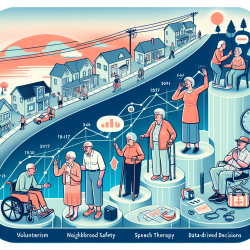Introduction
As practitioners, we understand the immense challenges faced by parents of children with life-limiting and life-threatening illnesses. These parents often find themselves navigating a complex web of medical care, emotional turmoil, and social isolation. The Keeping Hope Possible (KHP) Toolkit is a psychosocial intervention designed to support these parents by fostering hope, reducing distress, and enhancing their ability to cope with the challenges they face. This blog explores the development and evaluation of the KHP Toolkit and how it can be a valuable resource for practitioners working with families in these situations.
Understanding the KHP Toolkit
The KHP Toolkit is a self-administered intervention that emphasizes convenience, flexibility, and adaptability to diverse experiences. It includes practical information, planning tools, and reflective activities aimed at fostering both instrumental and psychosocial coping strategies. The toolkit is structured into four main sections, each designed to support parents in different aspects of their caregiving journey.
Key Findings from the Research
The research conducted on the KHP Toolkit followed a quasi-experimental crossover design involving 59 participants. The study measured hope, feelings of control, distress, and uncertainty before and after the intervention, as well as at a three-month follow-up. The results indicated a significant reduction in parental distress and highlighted the toolkit's benefits in enhancing parental well-being.
Implementing the KHP Toolkit in Practice
For practitioners, the KHP Toolkit offers a data-driven approach to supporting parents of children with life-limiting illnesses. Here are some ways to implement the toolkit effectively:
- Introduce the Toolkit Early: Providing the KHP Toolkit at the time of diagnosis can help parents navigate the initial emotional turmoil and establish coping strategies early on.
- Encourage Regular Use: Encourage parents to engage with the toolkit regularly, using its activities to manage stress, anxiety, and emotional overwhelm.
- Facilitate Reflection: Use the reflective activities within the toolkit to help parents process their emotions and experiences, fostering a sense of hope and control.
- Support Customization: Allow parents to adapt the toolkit to their unique circumstances, ensuring it meets their specific needs and preferences.
Encouraging Further Research
While the KHP Toolkit has shown promising results, further research is needed to explore its long-term impact and potential adaptations for different populations. Practitioners are encouraged to contribute to this body of research by documenting their experiences with the toolkit and sharing insights with the broader community.
To read the original research paper, please follow this link: Keeping Hope Possible Toolkit: The Development and Evaluation of a Psychosocial Intervention for Parents of Infants, Children and Adolescents with Life Limiting and Life Threatening Illnesses.










